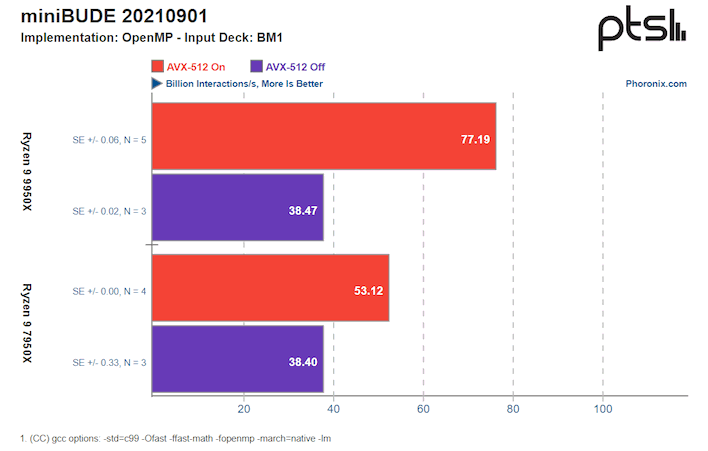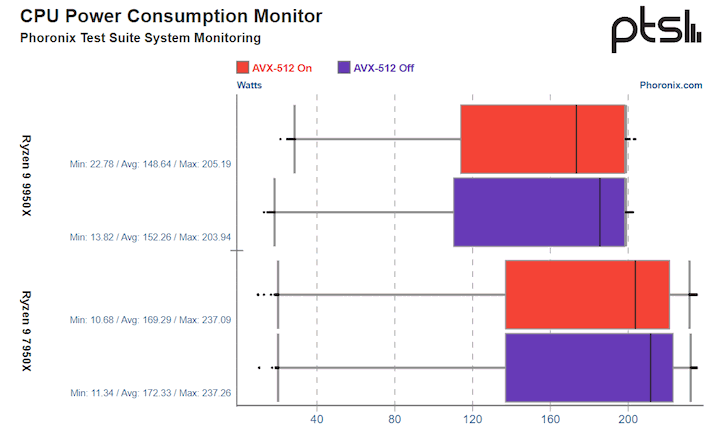AMD Ryzen 9 9950X's AVX-512 Performance Gets Put To The Test
Perhaps seeking to verify that the largest portion of the new architecture's performance boost is coming from the core's expanded AVX-512 support, Phoronix ran through 90 benchmarks, each one compiled with AVX-512 support enabled and then disabled, on a Ryzen 9 7950X and a Ryzen 9 9950X. The conclusion? AVX-512 is very fast on Zen 5, and in some applications, makes a huge difference in performance.

Notably, on some tests, like this miniBUDE HPC benchmark above, the improved AVX-512 performance is basically the only thing giving Zen 5 an advantage over Zen 4. However, that's not the case on every result; not by far. Other tests, like NAMD, saw Zen 5 score nearly twice as high as Zen 4 even without AVX-512—and with the extra-wide vectors enabled, AMD's new parts offer scorching speeds.
We're not going to spoil all of Phoronix's conclusions here; if you want to know the full story, head over there and check out the review, as it's worth the time. If you're not that interested, though, we can give you the Cliff's Notes version. While Phoronix finds a modest performance uplift from Zen 5 and that performance gain only increases when AVX-512 is enabled, the really interesting detail is that power consumption barely moves with the new instruction set toggled on.

This is particularly notable in the face of historical AVX-512 behavior, where Intel's original Xeon and HEDT CPUs with the instruction set were lambasted for taking heavy clock penalties when using the instructions. Zen 4 had no such problems, and Zen 5, despite having double-wide SIMDs, likewise suffers no clock penalty or major power consumption increase from using AVX-512.
Ultimately this revelation doesn't matter that much for most client desktop users because very little of that sort of software makes use of AVX-512, and in fact very few client desktop applications even have a suitable workload to make use of AVX-512. It may be fair to say that Zen 5 is slated to be a killer in the server market, but it could struggle against Intel's upcoming Arrow Lake in client workloads. We're eagerly looking forward to that battle, supposedly in October.


